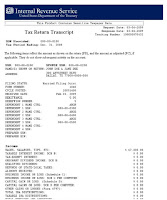A district court in Retfalvi v. U.S. (DC NC 8/15/2018) 122 AFTR 2d ¶2018-5144 , granted the government's motion to dismissed a taxpayer's refund suit for failure to state a claim where the taxpayer paid and then sought to recover from IRS an amount he paid based on his Canadian tax liability and Canada's collection assistance request under the U.S. - Canada Treaty.
The U.S. - Canada Income Tax Convention includes Article 26A, which is entitled "Assistance in Collection" and allows each state to request the assistance of the other in collecting revenue claims from their own citizens who are living within the other country. Specifically, Article 26A obligates each sovereign to undertake to lend assistance to each other in the collection of taxes referred to in paragraph 9, together with interest, costs, additions to such taxes and civil penalties, referred to in Article 26A as a "revenue claim."
Paul Retfalvi, originally from Hungary, moved to Canada in '88 and in '93 became a Canadian citizen. Later he found a job in the U.S. and remained there to practice medicine on an Hl-B visa. In 2006, he sold two condominiums in Canada and declared the proceeds on both Canadian and U.S. tax returns. The Canadian Revenue Agency (CRA) completed its audit on these two transactions, and, on Oct. 3, 2011, because Mr. Retfalvi chose not file an appeal with the Canadian Tax Court, the liability was finally determined, resulting in a Canadian tax assessment.
Mr. Retfalvi did not pay the amount owed to Canada, and thereafter the CRA sent IRS a Mutual Collection Assistance Request pursuant to Article 26A of the US-Canada Income Tax Convention. IRS sent Mr. Retfalvi a "Final Notice-Notice of Intent to Levy," demanding that he pay the current amount owed to Canada, which totaled $124,287.
On Dec. 22, 2016, Mr. Retfalvi paid the assessment. On Feb. 24, 2017, he filed a refund claim with IRS, which it rejected on June 15, 2017. On Sept. 14, 2017, Mr. Retfalvi filed suit for a refund, challenging the constitutionality of Article 26A.
Mr. Retfalvi contended that:
- Article 26A violated the U.S. Constitution's Origination Clause because it was a bill to raise revenue that did not originate in the House of Representatives;
- Article 26A was invalid because it was not self-executing;
- Article 26A violated the Taxing Clause of the Constitution (which provides that Congress shall have the power to lay and collect taxes) because (a) Congress has the exclusive authority to lay and collect taxes; (b) Congress cannot use its taxing power to levy or collect taxes of a foreign country; and (c) it purports to amend the Internal Revenue Code;
- IRS is not authorized to assess and collect taxes imposed by Canadian laws;
- Article 26A denied taxpayers due process;
- Article 26A denied taxpayers equal protection of the law under the Fifth Amendment (i.e., protection that was available to taxpayers who had taxes assessed under the Code); and
- Article 26A created an impermissible sub-classification of U.S. taxpayers (because it did not apply when the taxpayer could demonstrate that the revenue claim related to a tax period in which the taxpayer was a citizen of the requested State).
The district court rejected all the arguments put forth by the taxpayer.
The court concluded that Article 26A did not violate the Origination Clause for at least two reasons: (1) it was not a bill; and (2) it did not impose a tax, increase a tax, or decrease a tax that was created to fund the government generally.
The district court rejected Mr. Retfalvi's argument that the U.S. Constitution, Article I, section 8 grants Congress the exclusive power to "lay and collect taxes" and so prohibit the President from entering into a treaty concerning taxes. The court said that because the Constitution granted the President the power to enter into treaties, the President may use his treaty powers to dispose of U.S. property. Accordingly, the district court reasoned that although the Taxing Clause provides that "Congress shall have power," this language did not grant Congress exclusive power.
Further, the court found that Article 26A did not amend Code Sec. 6201 and Code Sec. 6301 by authorizing IRS to assess and collect taxes that were not imposed by the Code and treating a Canadian revenue claim as an assessment under U.S. law. Accordingly, Article 26A and the Code do not conflict.
To the extent that Mr.Retfalvi contended that Article 26A was invalid because it was not self-executing, the court reasoned that a treaty is not self-executing if the agreement would achieve what lies within the exclusive law-making power of Congress under the Constitution. And, Article 26A does not infringe on any of Congress's exclusive power and is self-executing.
Mr. Retfalvi claimed that Article 26A, by precluding the U.S. from reviewing the validity of Canada's revenue claim, violated due process because it denied him administrative and judicial review available under Code Sec. 6213 and Code Sec. 6330. Here, Mr. Retfalvi was provided with the right to file an appeal with the Canadian Tax Court. Mr. Retfalvi failed to plausibly allege that the procedures afforded to him under Canadian law violated the Due Process Clause.
In addition, the district court also rejected Mr. Retfalvi's argument that Article 26A denied him equal protection because he was not provided with the same administrative and judicial remedies available to taxpayers with U.S. tax liabilities.
The court noted that the Fifth Amendment Due Process Clause contains an equal protection guarantee which forbids arbitrary differentiations among groups of persons who are similar in all aspects relevant to attaining the legitimate objectives of legislation. Mr. Retfalvi failed to plausibly allege that Article 26A treated him differently from others with whom he is similarly situated.
Read more at: Tax Times blog

















